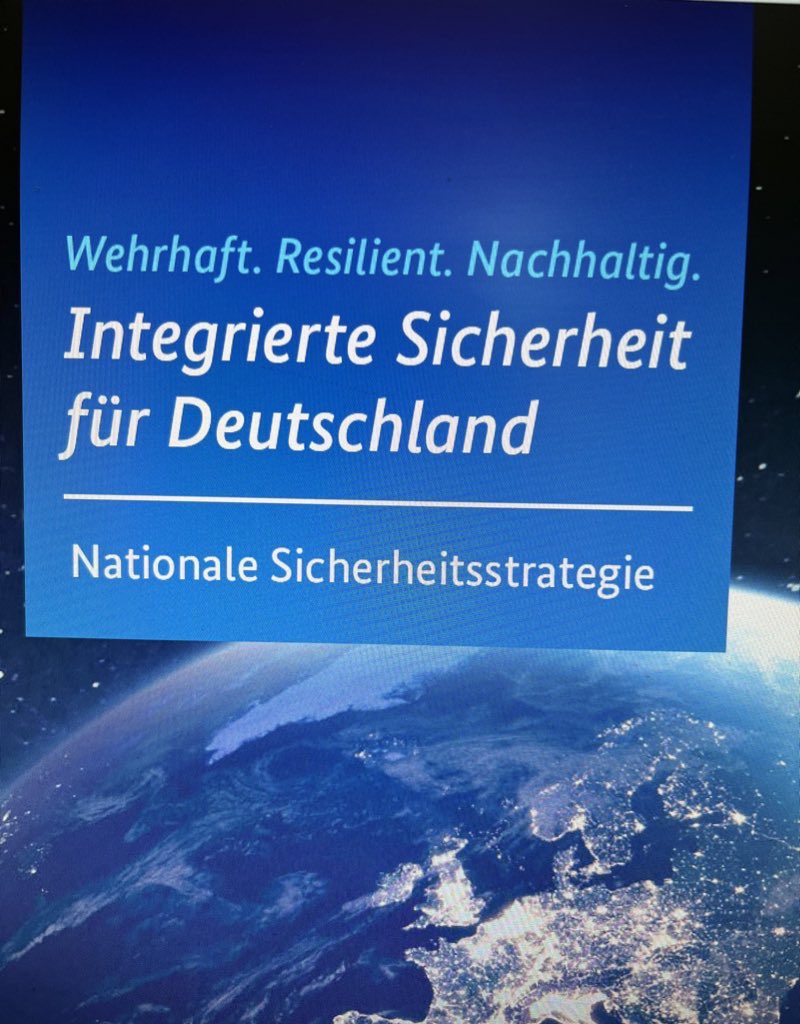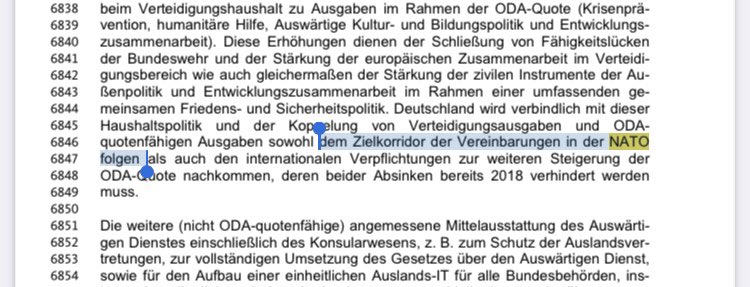Today is the day: Germany is getting its very first national security strategy.
I’ll follow the press conference at 11am and will let you know when we know more about its super secret* content.
*the strategy has been kept under close wraps.
*the strategy has been kept under close wraps.
Germany has had white books so far, but no comprehensive national security strategy. The document’s publication was delayed several times over this year - it was first supposed to be published in February, and be presented at the Munich Security Conference.
More or less how I’ll read the doc 😉
https://twitter.com/RikeFranke/status/1668885731480051714
Btw, important question: is there an official hashtag yet?
#Sicherheitsstrategie
#Sicherheitsstrategie
This is where things will be happening.
Btw, did I call the hashtag or what?
#Sicherheitsstrategie
Btw, did I call the hashtag or what?
#Sicherheitsstrategie
https://twitter.com/auswaertigesamt/status/1668900692793106433
First question, rather unsurprisingly, on whether and how Germany will reach the NATO 2% goal.
You can read Germany’s new national security strategy here #sicherheitsstrategie. There is an English translation and a French summary (weird that they didn’t just do a French translation too)
nationalesicherheitsstrategie.de
nationalesicherheitsstrategie.de
Press conference on the new German national security strategy with chancellor Scholz, foreign minister Bärbock and finance minister Lindner has just ended. A quick readout (from the press conference, not the #sicherheitsstrategie ):
The point the government clearly wanted to emphasise is that it is an INTEGRATED strategy. Not a defence white book - it sees security in a wide frame and includes energy security, food security, access to medicine etc.
China came up several times, also because there were many questions from journalists.
Lindner: “China is a trade partner but a values rival”.
Baerbock: “the world isn’t black and white, China isn’t black and white, Germany isn’t black and white”
#sicherheitsstrategie
Lindner: “China is a trade partner but a values rival”.
Baerbock: “the world isn’t black and white, China isn’t black and white, Germany isn’t black and white”
#sicherheitsstrategie
So clear that in the strategy, as well as in the coming China strategy, the government doesn’t want to adopt a completely confrontational approach to China but will continue to do an Macron-like “en meme temps”.
The second big topic in the press conference was German defence spending, and the 2% questions. Government said it will reach the 2% of GDP spent on defence “on a multi year average” (so not necessarily every year) even after the special 100bn fund runs out.
Gebauer from Spiegel rightly wondered how, since we don’t see that reflected in the current financial planning. Lindner: this is not the final decision yet.
So… well see. The question remains a valid one.
So… well see. The question remains a valid one.
Third big topic: the security council which is *not* coming.
That the German national security council isn’t coming isn’t news, it was reported beforehand as one of the reasons why the strategy took longer than anticipated . See here
https://twitter.com/rikefranke/status/1634478211328344065
It’s one of those topics that had been floating around in expert and political circles for quite a while
https://twitter.com/rikefranke/status/1387387874644008961
I also liked the idea
https://twitter.com/rikefranke/status/1407010190898180106
But yeah, the German national security council is not coming. Of course, Scholz, Bärbock and Lindner all said they were very happy with this decision, despite the fact that one journalist after the other tried to provoke them to say otherwise.
Two final thoughts on the press conference before taking on the strategy: 1) I liked defence minister Pistorius’ statement that “armament exports are also a part of the strategic toolbox.”
So we’re moving away from the idea that arms export are solely an economic decision.
So we’re moving away from the idea that arms export are solely an economic decision.
2) I find it odd that the journalists didn’t have the strategy before bc it created this weird power dynamic where the chancellor was like “did you SEE that in the strategy?” and the journalist was like “I haven’t seem anything yet”. Don’t know how normal that is,struck me as odd
https://twitter.com/rikefranke/status/1668846097983315969
Mhm. I’m on page 25 and so far I’m a bit bored.
Ok, made it to through. Here is my growing thread on the #Sicherheitsstrategie
https://twitter.com/rikefranke/status/1668982920302800896
• • •
Missing some Tweet in this thread? You can try to
force a refresh

 Read on Twitter
Read on Twitter











